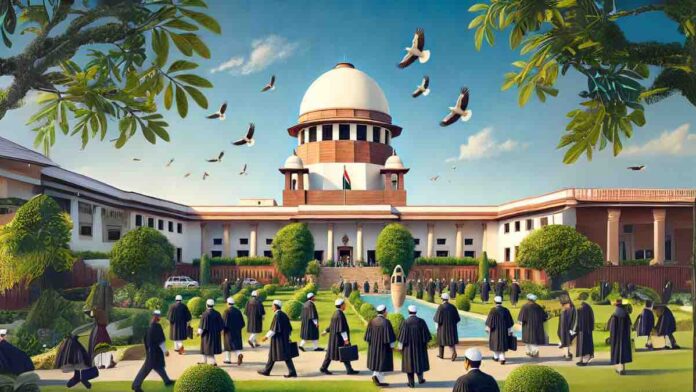In a transformative move, the Supreme Court of India is set to abolish its long-standing tradition of summer vacations in favour of ‘partial Court working days,’ as per the latest amendment to its procedural rules. This change, brought forth by the Supreme Court (Second Amendment) Rules, 2024, was officially sanctioned with the President’s approval and
To Read More Please Subscribe to VIP Membership for Unlimited Access to All the Articles, Download Available Copies of Judgments/Order, Acess to Central/State Bare Acts, Advertisement Free Content, Access to More than 4000 Legal Drafts( Readymade Editable Formats of Suits, Petitions, Writs, Legal Notices, Divorce Petitions, 138 Notices, Bail Applications etc.) in Hindi and English.




